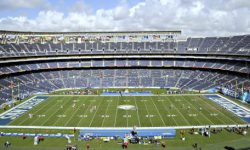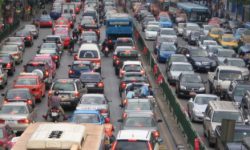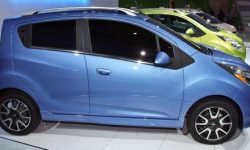October 26, 2012 - As it’s Friday, I feel like we should talk about traffic—at some point today we’re all going to be stuck in it. There is a news story circulating the web today about government of Beijing and their plan to pass new legislation in hopes of cutting traffic by 50%. That is pretty ambitious, don’t you think? Can you imagine what your drive home would look like with half the cars on the road? Probably not because you’d be driving so fast that you wouldn’t have time to notice…
The new legislation proposed by the government of Beijing attempts to reduce traffic congestion by only allowing cars with even numbers in their license plate drive one day, and cars with odd license plate number drive the others—so simple it hurts! The law would not apply to the entire metropolitan area of Beijing, but it would be enforced in the most congested areas of the city.
Apparently, China gave a similar policy (not sure what similar means) a shot back in 2008 whilst preparing for the Olympics. They found that traffic was reduced by 21 percent on big roads and the average speed went up by 27 percent. Obviously 21 is not 50, but that’s still pretty significant. Before we go ahead and hail the government of Beijing as our fabled saviors from the traffic apocalypse, let’s first address some of the criticism.
The most obvious argument against the new plan is that it will most likely cause reduced traffic in the short run, but it fails to solve the problem of traffic at its root. As we are well aware in the United States, reducing traffic in the short run is easy, but the long run is whole different animal. As a nation we have spent millions of dollars expanding the width of our freeways because obviously more roads equal more space equals less traffic. Problem solved right? Wrong. Wider roads abate traffic for a few months but before you know it the roads are just as congested as they were before. The simple economic principle of latent demand, as it applies to traffic, states that in the short run more roads do mean more space for drivers. However in the long run more roads encourage more people to drive. Simply put, more supply equals more consumption
Another criticism of Beijing’s traffic plan is that it favors the wealthy. I’m not sure what the process for assigning license plates is like in China, but obviously wealthier people could just go out and buy more cars. Two cars with even numbered license plates, and two with odd and you’ve easily beaten the system. How many people can really afford to go down the dealership and pick up a couple more cars just so they can drive on Wednesday AND Thursday? I would imagine it’s a relatively small percentage. Regardless, it does raise concern about the fairness of the legislation
I would love for people to weigh in on this and tell me what they think. I think we can agree that this particular system would be difficult to implement in the US. Imagine the uproar if we took away people’s right to their “I ❤ PUGS” vanity plate. What are some other creative ways that we might reduce traffic here in the States?





